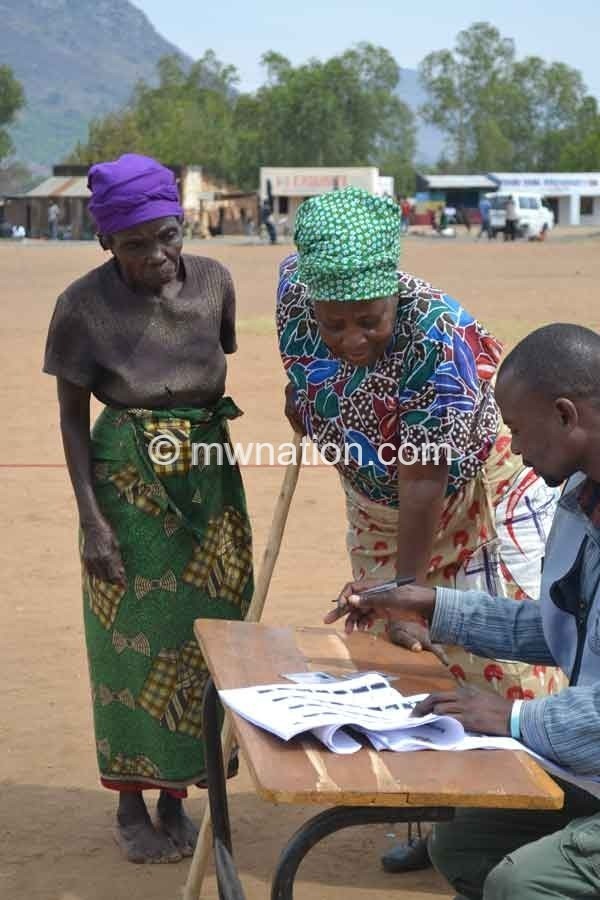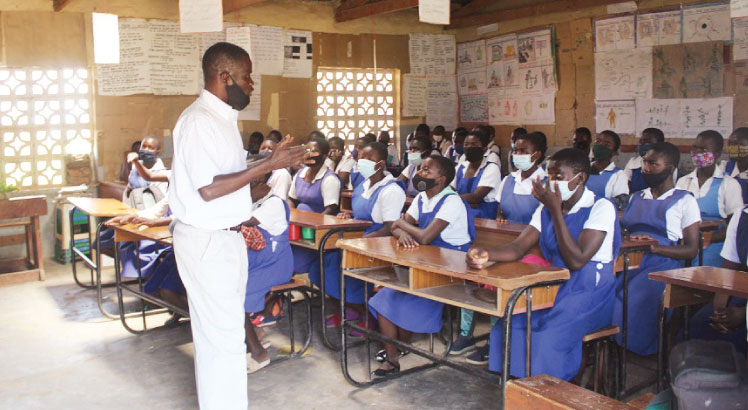May 20 Tripartite Elections and its drama

The year 2014 was pregnant with activities and events, chief of which was probably the country’s first-ever tripartite elections on May 20. The elections were full of drama, but also reviews and discussions that will likely shape the next major elections.
It is an election that began and ended with words that described it as both successful and poorly administered.
Opinion polls by Research Tech Consultants and Afrobarometer released a few weeks to the elections played a role in dividing opinions. The former tipped presidential candidate and People’s Party (PP) leader Joyce Banda as a possible winner while the Afro-barometer gave Democratic Progressive Party (DPP) and its candidate Peter Mutharika victory with 26 percent votes, and seconded by Lazarus Chakwera of Malawi Congress Party (MCP).
Equally influencing voters’ opinions was the first-ever live debates for presidential candidates, which the then incumbent president, Banda shunned.
Nonetheless, the big moment was on voting day on Tuesday, May 20. All roads led to different polling stations where voters cast their votes. In the preceding days, the Malawi Electoral Commission (MEC) had assured Malawians that it had prepared well for the elections. This made voters hopeful for free and fair elections. So too, was the news that international observers, including the European Union (EU), African Union (AU), Common Market for East, and Southern Africa (Comesa) and Southern Africa Development Community (Sadc) would be in the country to observe the elections.
The drama began two days before the elections. MEC’s optimism to successfully handle the elections was already on a litmus test. The vehicles it had planned to use to deliver voting materials became insufficient. Fortunately, government had allowed the electoral body to use its vehicles at the last hour. When problems are bound to occur, every mind is thrown in the dark. MEC made no communication to the public on whether the additional vehicles would bear the Tripartite Elections (TPE) registration numbers or not.
This bred chaos in Lilongwe after residents saw a vehicle belonging to Lilongwe City Council (LCC) carrying election materials just a day before elections. The irate people stormed the vehicle at the Civic Centre offices in Lilongwe and harassed MEC and government officials, including chief executive officer for LLC Richard Hara and Lilongwe district commissioner Charles Kalemba. The two resigned forthwith as elections coordinators.
This was just the beginning of the violence that marred the election.
By 6am on the voting day, all polling stations were open for voting and at most centres, voting began in time. However, due to what MEC says ‘logistical problems’, some centres did not receive voting materials in time. Some received wrong voting materials while others had insufficient materials. It was also reported that at some centres, some voters’ names were missing. Unfortunately, MEC could not defend the situation in time, leading voters to speculate that some rigging was going to take place.
“Sitivota! Sitivota! Sitivota! Simubera! Simubera! Simubera! (We won’t vote! You won’t rig the elections),” was the singing that painted Ndirande-Blantyre road that connects to MEC headquarters’ offices. Voters in Ndirande had concluded that the delay in delivery of voting materials and missing of some voters names was deliberate to facilitate rigging.
While some irate voters removed MEC’s main signposts at the headquarters in Blantyre, others started protesting the delay of voting materials in some centres in Blantyre such as Catholic Institute (CI), The Old Blantyre Taxi Office, Nkolokoti, Ndirande, Blantyre Girls and Chirimba centres were trickling fast online. Some centres in Lilongwe and Dedza, too, were simultaneously recording same incidents. Business was brought to a standstill as shops closed down and irate voters blocked some roads and set ablaze voting materials.
“I am sorry for this sad turn of events. We had logistical problems and I have learnt that a number of centres have been affected and voting materials have been damaged,” said MEC chairperson Justice Maxon Mbendera during a press briefing later in the day. The briefing was also attended by international observers and diplomats, including British High Commissioner Michael Nevin and then European Union Head of Mission Alexander Baum.
Mbendera announced the decision to extend the voting period by a day, but it was never enough as the local printing service could not satisfy the demand for the voting materials. So, some Malawians had to vote on the third day.
But it never rained but poured for MEC. The electronic vote tabulation system collapsed on the first day of vote count.
“The vote counting will delay. We have resorted to counting manually because the electronic tabulation system has collapsed, but let me assure Malawians that everything is under control,” Mbendera said in an evening press briefing.
However, this did not delay the public to know who would carry the day. Radio and television stations continued to broadcast results of vote counting from tally centres. By Wednesday morning, Zodiak Broadcasting Station (ZBS) had reported that Mutharika was in the lead, trailed closely by Chakwera. In its final report, ZBS reported that DDP got a total of 1 789 364, MCP 1 387 500, PP 1 042 686 and UDF 665 819.
Malawi Electoral Support Network (Mesn) seemed to support ZBS’s findings.
“Mesn can report with 99 percent confidence that the official turnout rate for the 2014 presidential election will be between 68.7 percent and 72.5 percent. DPP will get 36 percent followed by MCP with 28.4 percent, PP will have 20 percent and UDF 13.6,” said Mesn chairperson Steve Duwa, while reading their final comprehensive report to the media.
After counting 30 percent of the votes, MEC too reported that preliminary results showed DPP in the lead.
There was shock and disbelieve in the PP camp, especially on Wednesday night and Thursday morning. While most PP parliamentarians who had lost the elections were busy restrategising their next moves, former Local Government minister Godfrey Kamanya shocked everyone by committing suicide. He left a note with allegations that he was receiving death threats.
Despite MEC admitting that there had been several anomalies in the voting and that it would look into each complaint, on May 22, Banda called for a nullification of the elections until irregularities were rectified. Nevertheless, her desire hit a snag.
About 48 hours later, while saying she was exercising her constitutional powers, Banda evoked Section 88(2) of the Constitution to nullify the elections pending another election to be conducted within 90 days.
Speaking live on ZBS, Banda said the decision was to allow Malawians to elect a leader of their choice. She announced that she would not contest in the elections.
However, her direction met stiff resistance from MEC and the Malawi Law Society. When approached, the High Court granted MEC an injunction restraining the then president from nullifying the elections. What followed later were injunctions by different parties, with some calling for a vote recount and others saying a recount will not produce credible results.
Several injunctions were obtained, but at the end of it all, the High Court ordered MEC to announce the results within the eight days specified time, which was expiring few hours later.
Mbendera left Malawians speculating about the elections outcome when he cried while announcing the final elections results. His explanation was that he got emotional when he thought that a life was lost during the elections violence, which could have been avoided.
On May 31, Mutharika was inaugurated as the new President of Malawi, marking the end of the elections drama.





